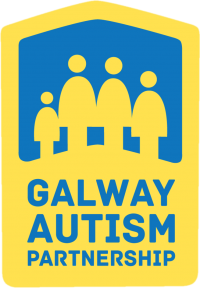The assessment of autism in a child under the age of 18 years can be a lengthy and challenging, but ultimately worthwhile process. To make the process as efficient and easy as possible, GAP will explain the various routes to autism assessment and diagnosis.
When might your child be referred for an autism assessment?
- Some children will be referred for an autism assessment in early childhood or pre-school aged. A parent, Public Health Nurse, GP, Paediatrician, Educators or another professional may be aware of symptoms and it may be suggested that a child be sent for referral
- Older children may be sent for referral if they are experiencing learning, emotional, social or behavioural difficulties at school, at home or in the community
- It is possible that a child can be diagnosed with other conditions or differences before an assessment for autism e.g., it is not uncommon for a child diagnosed with ”Social and Communication Disorder” to receive and autism diagnosis later in life
What happens when my child is referred for an autism assessment?
- Depending on the age of your child, they will be referred to Early Intervention (ages 0 – 6 years) or to the School-aged Children’s Disability Network team (6 – 18 years)
- Depending on the service that your child is referred to they may be assessed by a Psychologist, a Paediatrician or a multi-disciplinary team. A multi-disciplinary team can consist of different professionals such as a Speech and Language therapist, Occupational Therapist, Physiotherapist, Psychologist or others.
- Some services will use an external agency for assessment e.g., Servisource
- Unfortunately, many parents report long waiting times for assessment; up to 18 – 24 months on average
- The Galway Roscommon Autism Services (GRASD, aka Athenry Services) are in the process of reconfiguration under the Progressing Disability Service for Children and Young people
Private or public assessment?
- Public assessments are free of charge, but children will generally wait longer for an assessment
- Private assessments can be costly (€600 – €1000), but there is generally a shorter wait time
- If you choose a private assessment for your child, it is recommended to also be referred to your local Early Intervention or School Age Disability Teams so that you can access all available supports.
- It is important to make sure that a private assessment will be recognised by both the HSE and the Department of Education. Before agreeing to a private assessment, ask if it will include:
- A cognitive or developmental assessment
- An ADOS-2 or ADI – R assessment
- Detailed observation / parent interview
- You can search for a psychologist in your city or county by using the ”Find a Psychologist” search on The Psychologist Society of Ireland website.
What does an Autism Assessment entail?
Teams and professionals may have different methods of assessing autism, but you can generally expect the following:
- A comprehensive psychological assessment examining educational, behavioural, emotional and social profiles
- Autism diagnostic tools, including the ADOS (Autism Diagnostic Observation Schedule)
- A speech and language assessment involving observation and interaction with the child
- Parental interview such as developmental, dimensional and diagnostic interview (3di) or the Autism Diagnostic Interview, Revised (ADI-R)
What happens if my child is diagnosed as autistic?
- You will receive a comprehensive report from the assessment that can outline your child’s strengths and abilities, as well as areas that they require support in
- Most reports include strategies or recommendations that you can use at home to support your child or to improve skills
- Reports are important when trying to access health and education support and services, as well as accessing benefits and entitlements


